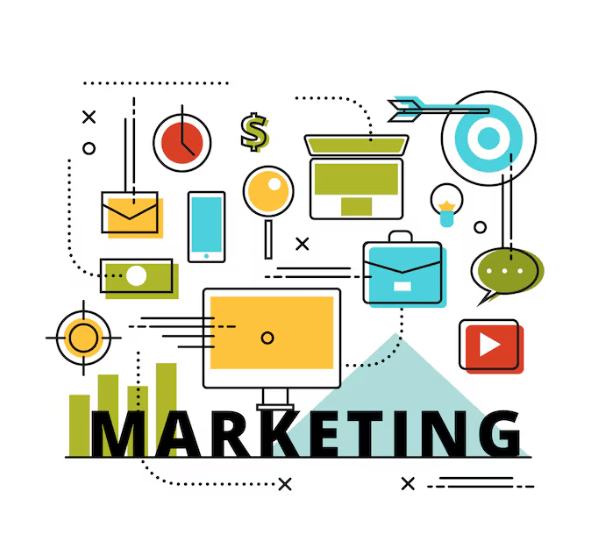On October 28, 2021, during the company’s annual Connect conference, Facebook CEO Mark Zuckerberg announced that Facebook’s parent company would be renamed Meta. This rebranding reflects the company’s strategic shift towards building the “metaverse”—an interconnected virtual reality space where users can interact with each other and digital environments in real-time. Zuckerberg emphasized that Meta’s focus would be on creating immersive experiences that go beyond traditional social media platforms. The rebrand aims to position Meta at the forefront of the next evolution of the internet, integrating technologies like virtual and augmented reality into daily life.
In October 2021, Facebook, a name synonymous with social networking, announced a monumental shift in its corporate identity. The company rebranded itself as Meta, signaling a new chapter focused on building the “metaverse.” This rebranding was a name change and a strategic pivot towards a more immersive digital future. In this article, we will delve into the details of Facebook’s rebranding to Meta, explore the reasons behind the change, and examine what the company envisions for the metaverse.
The Announcement: Facebook Connect 2021 and the Birth of Meta
On October 28, 2021, at the Facebook Connect 2021 conference, Mark Zuckerberg, the CEO of Facebook, announced that the parent company would change its name to Meta. This announcement was part of a broader vision to transition from a social media company to a leader in the next frontier of technology: the metaverse. The rebranding to Meta was intended to reflect the company’s new focus on developing virtual and augmented reality experiences.
Defining the Metaverse: A New Digital Frontier
The term “metaverse” refers to a collective virtual shared space created by the convergence of virtually enhanced physical reality and physically persistent virtual spaces. It encompasses a wide array of digital environments where people can interact with each other and digital objects in real time. Meta envisions a metaverse where social interactions, work, entertainment, and commerce can all occur within a seamless digital ecosystem.
Strategic Intent: Why Facebook Became Meta
One of the primary reasons behind Facebook’s rebranding to Meta was to establish a new identity that aligns with its future aspirations. The company has been investing heavily in virtual reality (VR) and augmented reality (AR) technologies, and the name Meta encapsulates this strategic direction. By rebranding, the company aims to distance itself from the controversies and challenges associated with the Facebook brand and focus on innovation and growth in new areas.
Beyond Social Media: Meta’s Vision for the Future
While Facebook remains one of the most popular social media platforms globally, the rebranding to Meta signifies the company’s intention to expand beyond its roots in social networking. Meta aims to become a leader in developing the infrastructure and technologies necessary for the metaverse, which is expected to revolutionize how people interact with digital content and each other.
A Fresh Image: Rebuilding Trust and Reputation
Facebook has faced numerous challenges and controversies, including data privacy, misinformation, and regulatory scrutiny. By rebranding to Meta, the company seeks to reshape its public image and signal a fresh start. The new name allows the company to redefine itself and focus on its long-term vision, which is not limited to social media.
The Metaverse Experience: Social Connection in 3D Spaces
The metaverse promises to offer users new ways to connect and engage with each other. Unlike traditional social media platforms, where interactions are limited to text, images, and videos, the metaverse will enable users to have immersive experiences. Whether attending virtual events, exploring digital worlds, or collaborating on projects, the metaverse will provide endless possibilities for social interaction.
Opportunities for Business and Creators
The metaverse is about social interactions and presents significant opportunities for creators and businesses. The metaverse offers a new frontier for commerce and entrepreneurship, from virtual storefronts to immersive advertising. Creators can develop and monetize digital content, while enterprises can reach audiences in innovative ways.
Challenges Ahead: Addressing Privacy, Security, and Access
While the metaverse holds great potential, it also poses challenges and considerations. Privacy, security, and accessibility are critical issues that must be addressed to ensure the metaverse is a safe and inclusive space for all users. Additionally, the metaverse development requires significant advancements in technology and infrastructure, which will take time to achieve.
Investing in the Future: Meta’s Commitment to Innovation
Meta is committed to investing in the technologies and innovations necessary to bring the metaverse to life. The company has already invested substantially in VR and AR, acquiring companies like Oculus and developing products like the Oculus Quest headset. Moving forward, Meta plans to continue its research and development efforts to build the foundational technologies for the metaverse.
Building an Open Ecosystem: Collaboration is Key
To realize the metaverse’s vision, Meta recognizes the importance of collaboration with partners across industries. The company aims to work with developers, creators, and organizations to build an open and interoperable metaverse. By fostering collaboration, Meta hopes to create a diverse and vibrant digital ecosystem that benefits everyone.
Ethical Considerations: Developing the Metaverse Responsibly
As Meta embarks on this new journey, it is essential to consider the metaverse’s ethical and social implications. The company is committed to working with policymakers, experts, and communities to address these concerns and ensure the metaverse is responsibly developed. Meta aims to set privacy, safety, and inclusivity standards in the digital realm.
Conclusion: A New Digital Era Begins with Meta
The rebranding of Facebook to Meta marks a significant turning point for the company and the technology industry. When did Facebook rebrand to Meta and announce its plans for a metaverse? This shift was publicly unveiled during the Facebook Connect conference on October 28, 2021. By focusing on the metaverse, Meta aims to create a new digital landscape where people can connect, work, and play in previously unimaginable ways. While the journey to realizing the metaverse is still in its early stages, the potential for innovation and transformation is immense. As Meta continues to invest in technology and collaborate with partners, the vision of the metaverse is becoming increasingly tangible, promising a future where digital and physical realities seamlessly intertwine.
Read more:
- Exploring Different Types of Social Media Marketing for Business Growth
- Adapting to the Evolution of Social Media Marketing
- 5 Underrated Advantages of Social Media Marketing You Must Know
- Top 5 Marketing Strategies for Cosmetics and Beauty Brand
- 5 Strategies to Pop The Fizz on Success via Food and Beverage Digital Marketing
Here are the answers to your questions about Facebook and the metaverse:
1. When did Facebook become Meta?
Facebook rebranded to Meta on October 28, 2021, during the company’s annual Connect conference. The rebrand reflects the company’s shift towards building the metaverse and its vision beyond social media.
2. How did Facebook rebrand to Meta?
Facebook rebranded by changing its parent company name to Meta to better represent its focus on the metaverse, a virtual world combining augmented and virtual reality. The social media platforms like Facebook, Instagram, and WhatsApp continue under the Meta umbrella.
3. Is Facebook releasing a metaverse?
Yes, Meta (formerly Facebook) has been developing a metaverse, investing heavily in virtual reality (VR) and augmented reality (AR) technologies. Platforms like Horizon Worlds are part of their metaverse initiatives.
4. What happened to Facebook’s metaverse?
Meta’s metaverse project has faced challenges, including user adoption and criticism over high costs, but the company continues to invest in developing the metaverse, albeit with some restructuring and setbacks.
5. Is Meta still doing the metaverse?
Yes, Meta is still committed to building the metaverse, with ongoing investments in VR, AR, and platforms like Horizon Worlds, although they have faced challenges in execution and profitability.
6. Which metaverse is Facebook using?
Meta is building its own metaverse platform called “Horizon Worlds,” where users can interact in virtual environments through VR. This platform is part of Meta’s broader vision for the metaverse.







